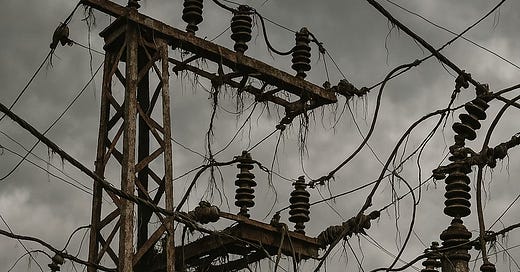The slow collapse of the Texas Energy Fund (TEF) should come as no surprise. Critics warned from the beginning that it wouldn’t work—and now, even Chris Tomlinson of the Houston Chronicle, a persistent opponent of affordable, reliable thermal generation, is acknowledging the obvious: the Texas electricity market is broken, and it won’t be fixed by half-measures like taxpayer subsidized loans.
Constellation Energy, WattBridge, and others are pulling out of the TEF because they know the truth: natural gas doesn’t need a government handout—it needs a functioning market.
For years, Texas relied on its “energy-only” market structure to deliver affordable and reliable power. And in theory, that model should still work. But ERCOT no longer operates in a free market—it’s distorted by federal subsidies for unreliable generation, overbuilt renewables, and transmission congestion that penalizes firm power near urban demand centers.
The economics in an energy-only market may have been a good idea when all resources were dispatchable. But in today’s grid—where intermittent wind and solar are paid regardless of reliability—it’s no longer enough. As Tomlinson himself notes, “executives warned lawmakers…they didn’t want loans; they needed greater certainty about revenue from the competitive wholesale electricity market.”
They were right. And now they’re walking away.
Since 2020, electricity costs in the ERCOT market have risen 28%, despite the price of natural gas for power plants in Texas remaining near historic lows.. Texans now pay more for residential electricity than every state that borders us, including Louisiana and Arkansas—states that have little to no wind and solar generation on their grids.
Senator Kevin Sparks Layout of SB 715
The economic pain Texans are feeling isn’t accidental—it’s the direct result of a market that no longer prioritizes reliability, and a regulatory framework that rewards the politically favored, not the operationally essential.
The TEF was supposed to jumpstart new natural gas plant construction with low-interest loans. But it’s quickly turning into another example of how central planning fails when markets are broken. Projects representing nearly 3,400 megawatts have already withdrawn—more than a third of the program.
Companies aren’t dropping out because they don’t want to build. They’re dropping out because the incentives to build are gone. Revenue is too uncertain. Risk is too high. Permitting is too slow. And the rules keep changing.
If the goal is to build more reliable thermal generation, low-interest, government-backed loans are not the solution. Market reform is.
Fortunately, the Texas Legislature has better options on the table.
1. Reliability Standards: SB 715 (Sparks) / HB 3356 (Patterson)
This bill would apply uniform reliability standards to all generators—leveling the playing field between dispatchable and intermittent resources. Instead of picking winners and losers, SB 715 simply asks: can you deliver when Texans need power most?
This approach rewards reliability and disincentivizes free riders who are flooding the grid when it’s easy and vanishing when it’s hard.
2. A New Market Design: HB 4817 (Rep. Wes Virdell)
Rep. Virdell’s bill goes even further, proposing a “reliable-energy-only” market. This would fundamentally realign incentives—paying generators willing to meet a reliability standard, not just for existing, but for being there when the grid is under stress.
It’s a way to restore price signals so new gas plants—and maybe even clean coal or advanced nuclear—can pencil out again.
The TEF is failing not because it wasn’t well-intentioned, but because it treats a market problem as a financing problem. And as more energy companies back away, even critics like Tomlinson are forced to admit: you can’t fix the grid without fixing the market.
In his State of the State address, Governor Abbott called “for Texas to lead a nuclear power renaissance in the United States.” For that to happen, the market needs fair rules, honest prices, and a level playing field; not more grants, taxpayer-backed loans, or subsidies.
If lawmakers are serious about keeping the lights on—and keeping electricity affordable and reliable for Texans—they should pass real market reforms like those found in SB 715 and HB 4187.
The Honorable Jason Isaac is the President of American Energy Works. He previously served four terms in the Texas House of Representatives.





great article, again Jason. give us an idea about whether or not this has a chance of passing. it is simple really. Texas passes this or something similar or the grid has no chance to get fixed. The ten Billion gas bill will not work without these changes and it without the changes, it will only cost ratepayers in Texas, basicallly forever. Why can't the legislature understand?
Dana McGinnis
Another great defense of how a free market in energy could solve Texas energy problems. This is not hard. Thanks Jason for continuing to be a champion in this cause.